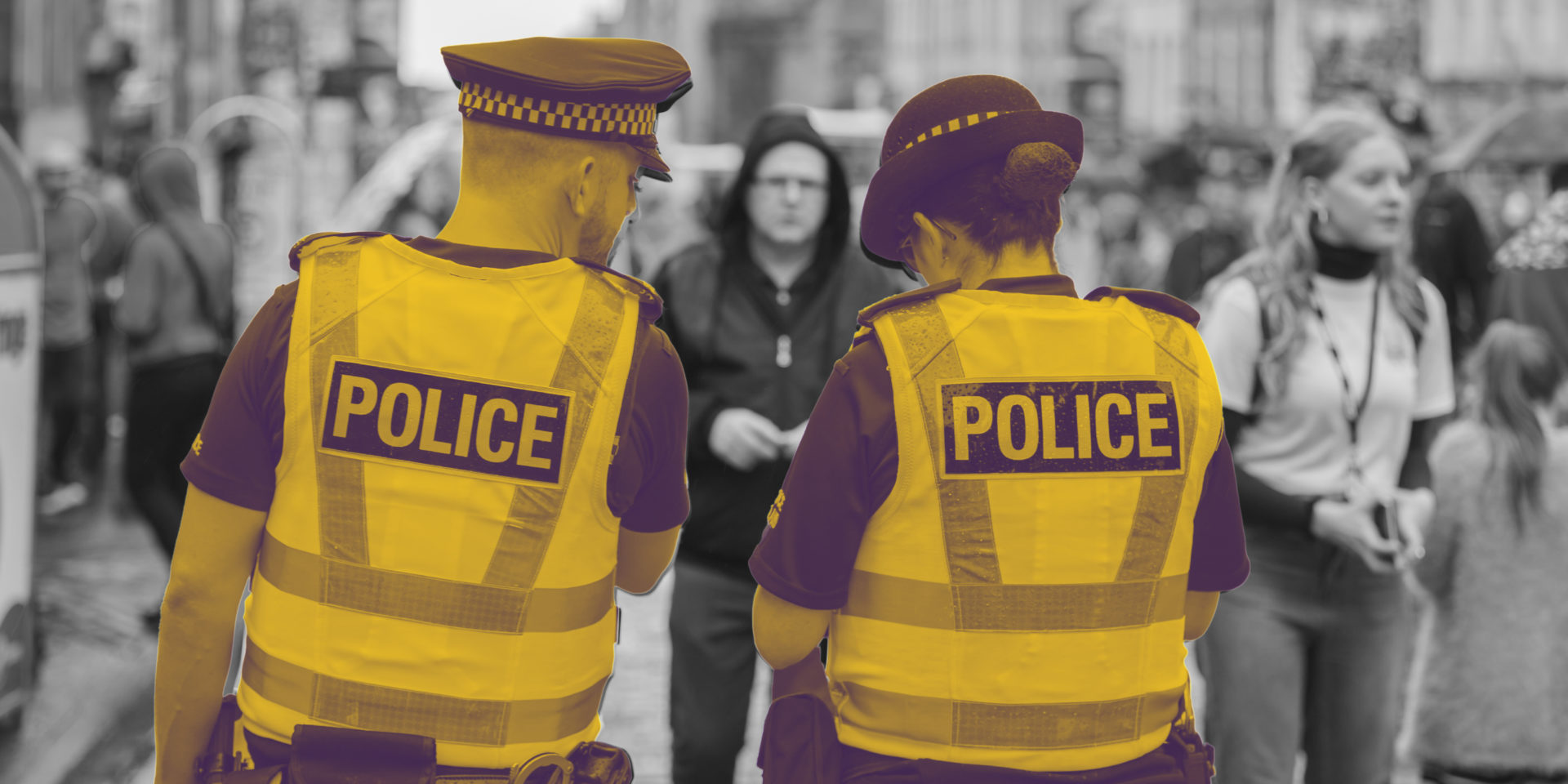The Scottish Police Authority (SPA) has rejected calls for an independent inquiry into policing over the course of COP26.
The SPA, which holds Police Scotland to account, said the force’s conduct at the climate change conference was “proportionate, fair, positive, and balanced,” and “attracted international interest and positive comment”.
Police Scotland had been criticised by human rights and environmental groups for its treatment of protesters at the 13-day event, as reported by The Ferret, sparking calls for a review into the force’s conduct.
Article 11 Trust and Netpol wrote a report in December accusing the police of “kettling, excessive force, racial discrimination, intrusive surveillance and intimidation and the harassment of locals” at the conference.
The SPA said that while the group’s report was “an interesting and early perspective” on the policing of COP26, “the authority’s oversight and assurance-seeking of Police Scotland’s planning and delivery of COP26 has been extensive, and over and above formal governance structures”.
We are keen that more evidence is heard which challenges Police Scotland’s account of the policing operations.
Not One Rogue Cop
The SPA added that an independent advisory group will submit a report on COP26 policing soon.
Article 11 Trust, a group which protects the right to protest, raised questions over SPA’s claim that an independent advisory group looking into police conduct over the conference would be independent.
It said the SPA had “flatly ignored numerous serious human rights concerns and rejected the call for an independent inquiry”.
“Concerns of intimidating and intrusive surveillance, and discriminatory, violent, excessive and repressive protest policing were conspiciously ignored,” it said.
“No comment was made on the intrusive surveillance, harassment, interference and threat of arrest to independent legal observers, particularly towards female legal observers.
The group also asked why the SPA did not provide an explanation of the “astronomical increase in the use of Section 20,” a law which gives the police power to stop and search people to protect life.
“We reiterate our calls for an urgent independent inquiry on the grounds that SPA has failed to address concerns about potential human rights breaches,” the group added.
The group gathered evidence from members of the public and protesters who attended the event.
One protester told the human rights groups a woman “passed out from lack of breath… she was ignored until she wasn’t conscious”.
Another said “an officer grabbed my sister by the throat and threw her backwards”.
In a meeting on 23 March, Tom Halpin, chair of COP26 policing oversight group and member of the SPA said “overwhelmingly the committee were very supportive and reassured by the success of this policing operation.”
He added: “Real focus was placed on welfare and wellbeing”.
Not One Rogue Cop, an organisation looking into police brutality, told The Ferret it “supports Article 11 Trust’s calls for an independent inquiry”.
A spokesperson said: “We fully endorse the report authored by Article 11 and Netpol which documents police failings and breaches.
“We are keen that more evidence is heard which challenges Police Scotland’s account of the policing operations”.
The COP26 Coalition said “the experience of people all over the world who were in Glasgow for COP26 was positive”.
“The two disappointments were the failure of COP to address the challenge of climate change, and the heavy handed treatment dished out in some police operations against peaceful and dignified protests,” Stephen Smellie of UNISON Scotland and the coalition said.
A spokesperson for the SPA said: “There has been extensive oversight of Police Scotland’s approach to policing COP26 in advance, during and after the event.
“Analysis and learning from the event continues and we would strongly advise anyone dissatisfied with the policing they received to record this through established complaints procedures.
“Early insights from key stakeholders, the Independent Advisory Group chaired by John Scott QC and independent polling of Glaswegians demonstrate that overall the policing approach was proportionate, fair, positive and balanced carefully the rights of individuals to protest with the need to maintain safety and wellbeing of citizens and communities”.
Will Kerr, Police Scotland said: “We were consistently clear before COP26 that our policing operation would be friendly and human rights-based, and that we would protect the rights of people who wished to peacefully protest or counter-protest at COP26, balanced against the rights of the wider community.
“As a result, huge marches and rallies took place, largely without incident. Young people powerfully demonstrated their commitment to tackling climate change and the vast majority of those who made their voices heard did so peacefully and lawfully.
“The policing operation was one of the biggest in UK history, during which officers engaged with over 400 individuals and groups where there may have been concern in terms of public safety or protest activity, and made just 97 arrests”.
Content note: This story has been updated to include the SPA and Police Scotland’s response.
Cover Photo Credit: iStock/StephenBridger














